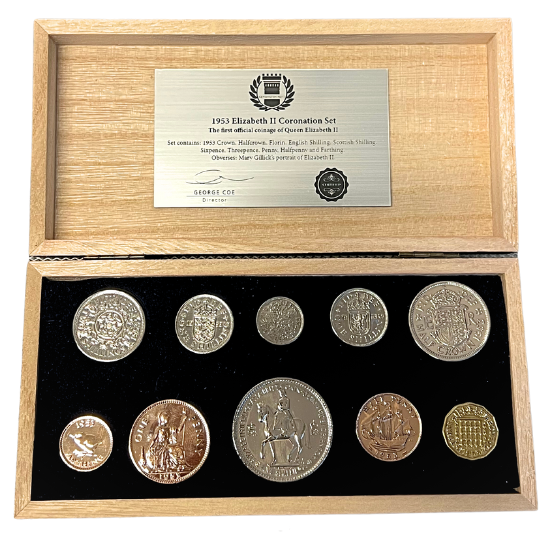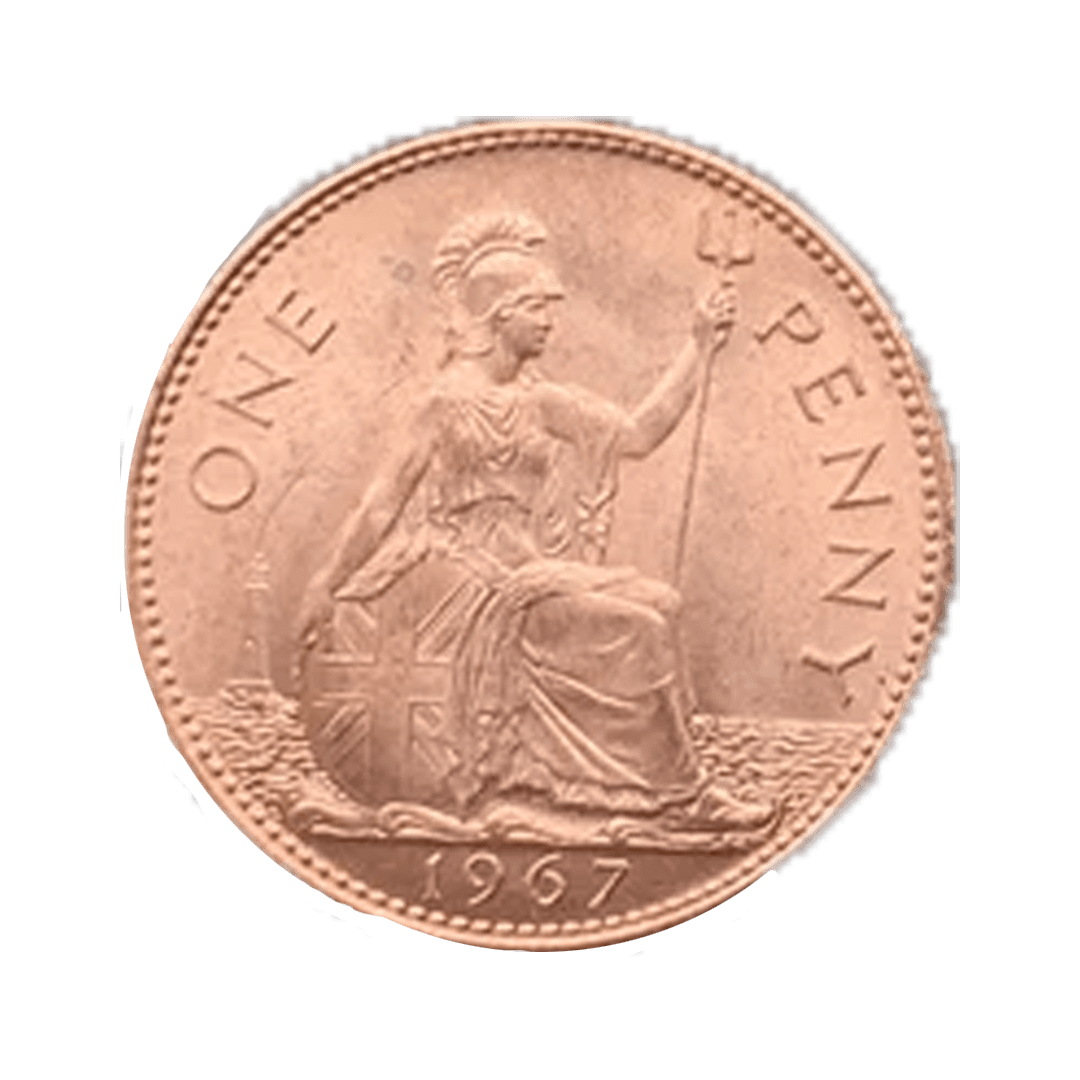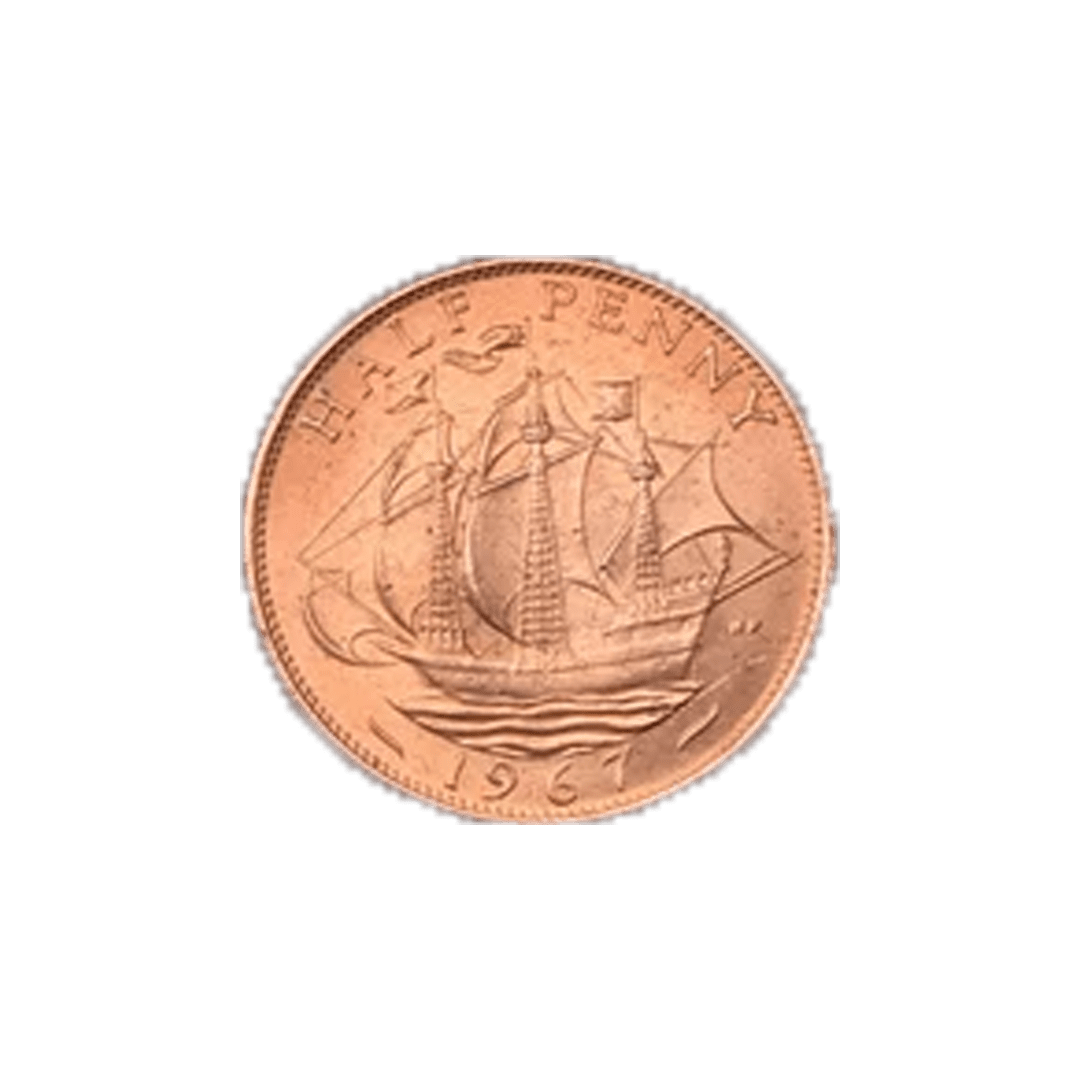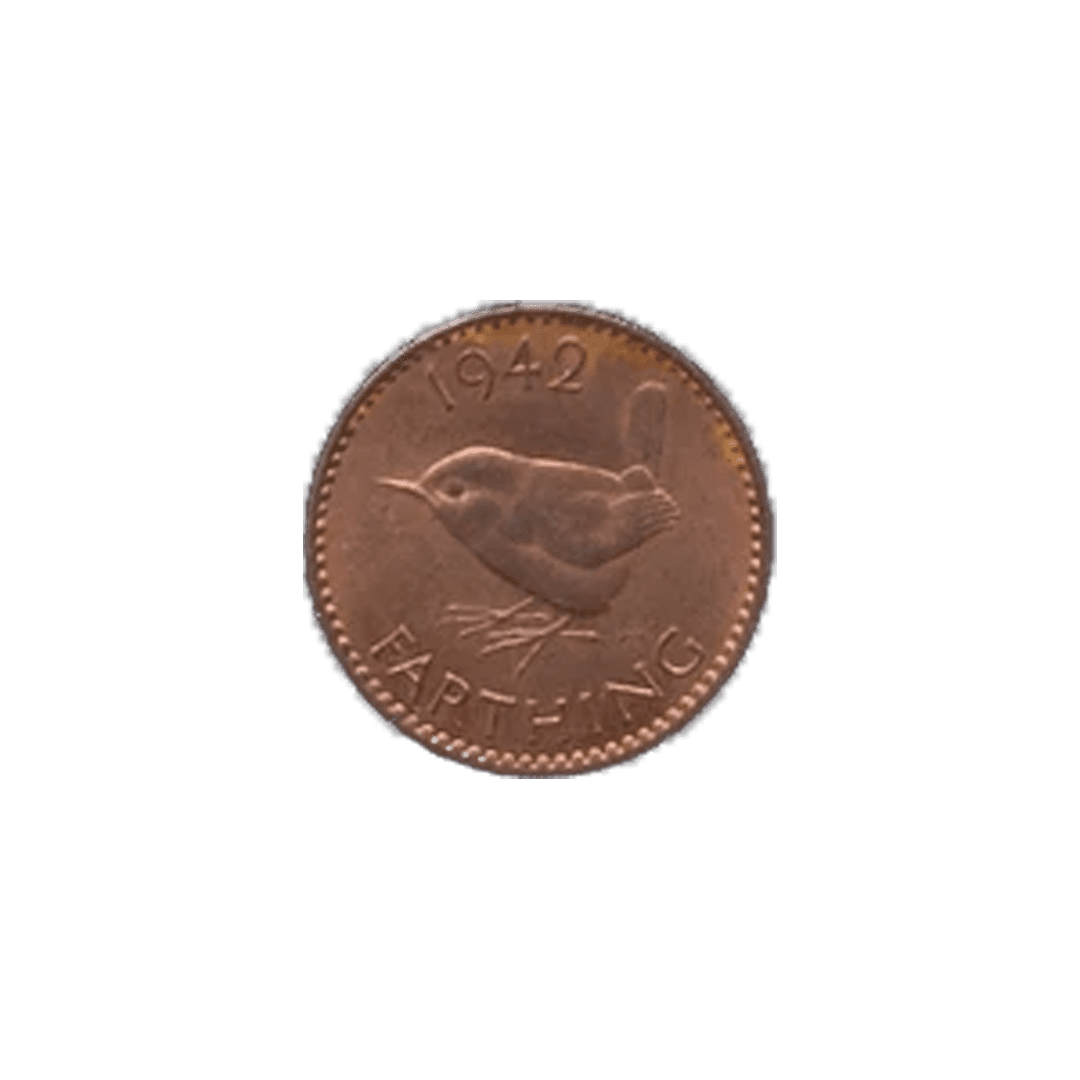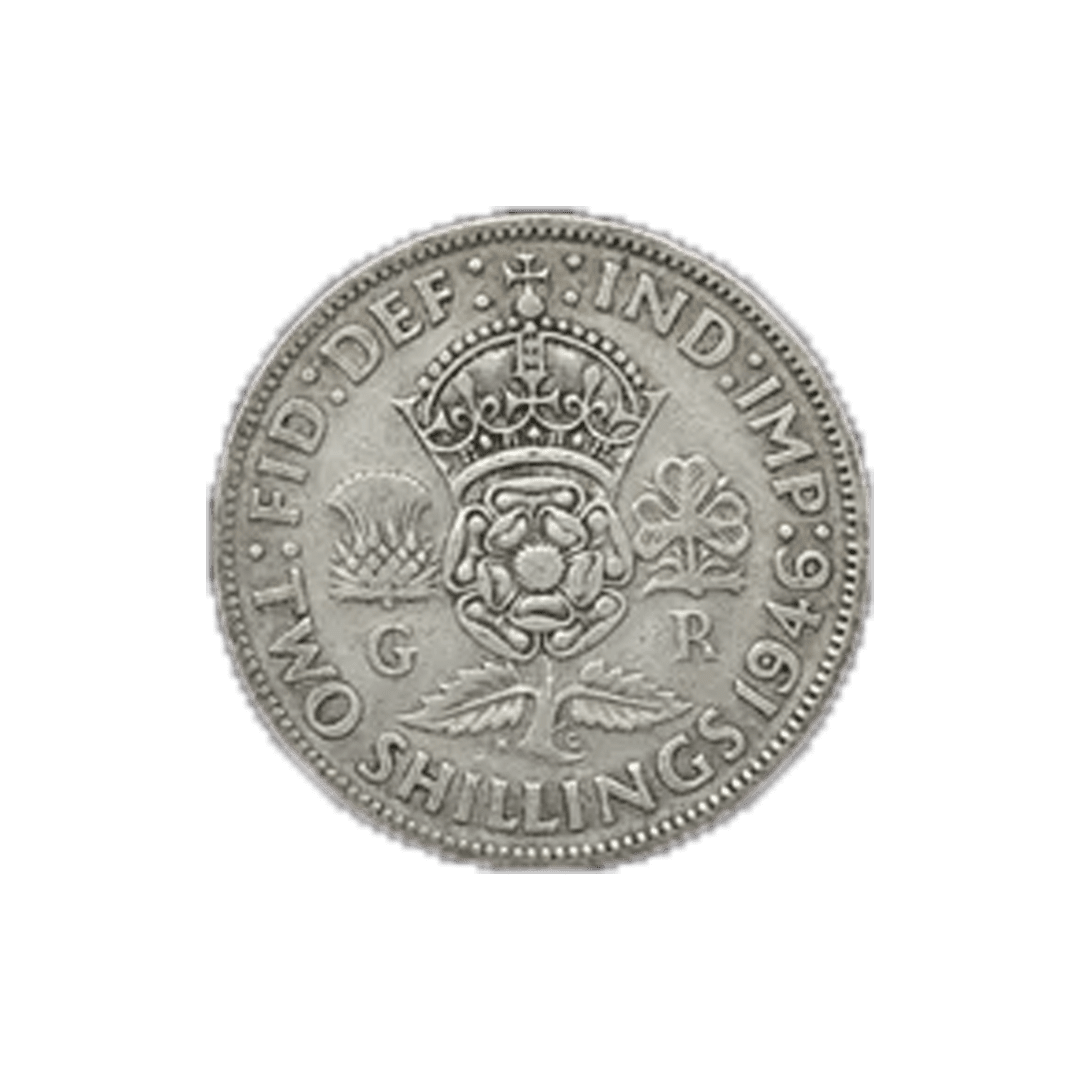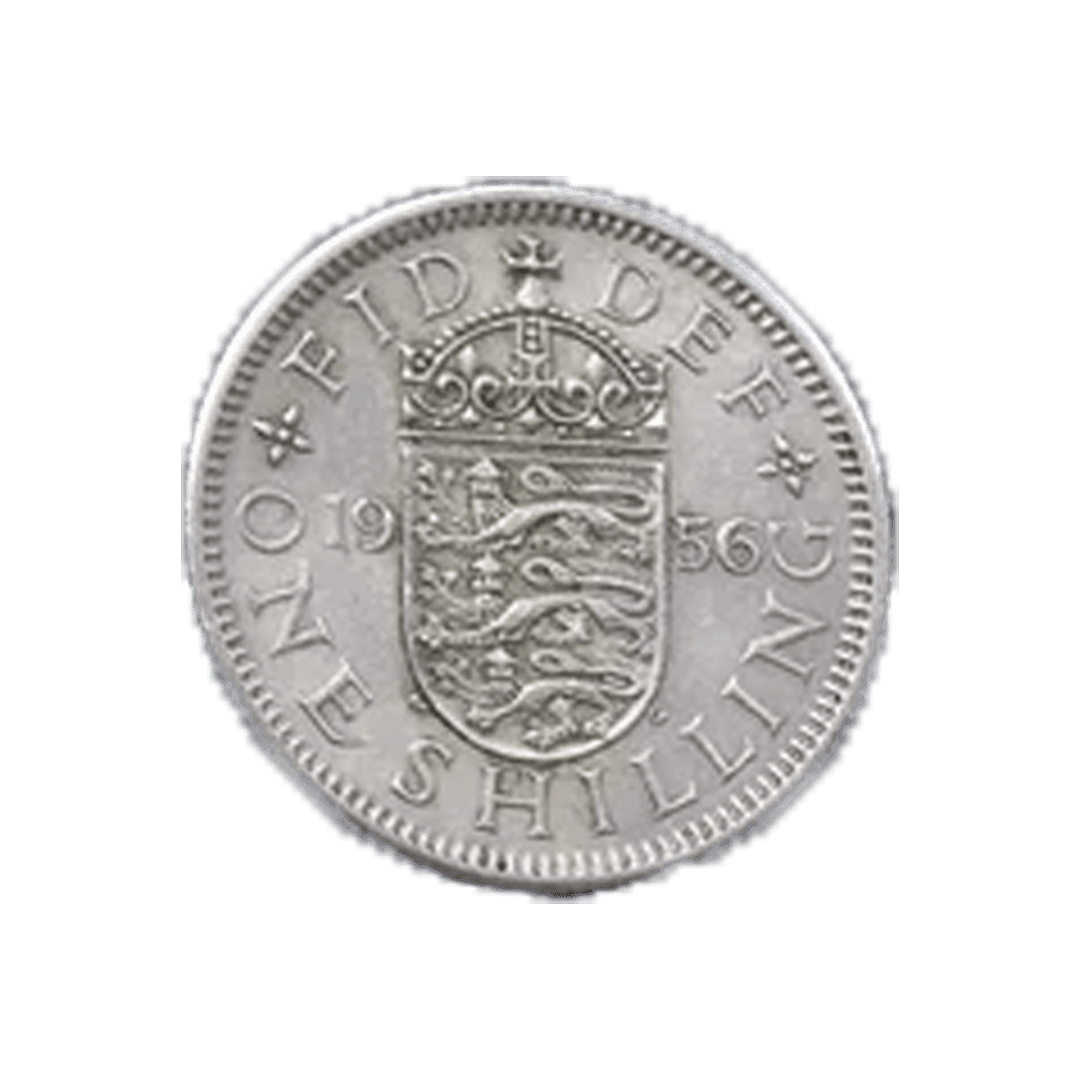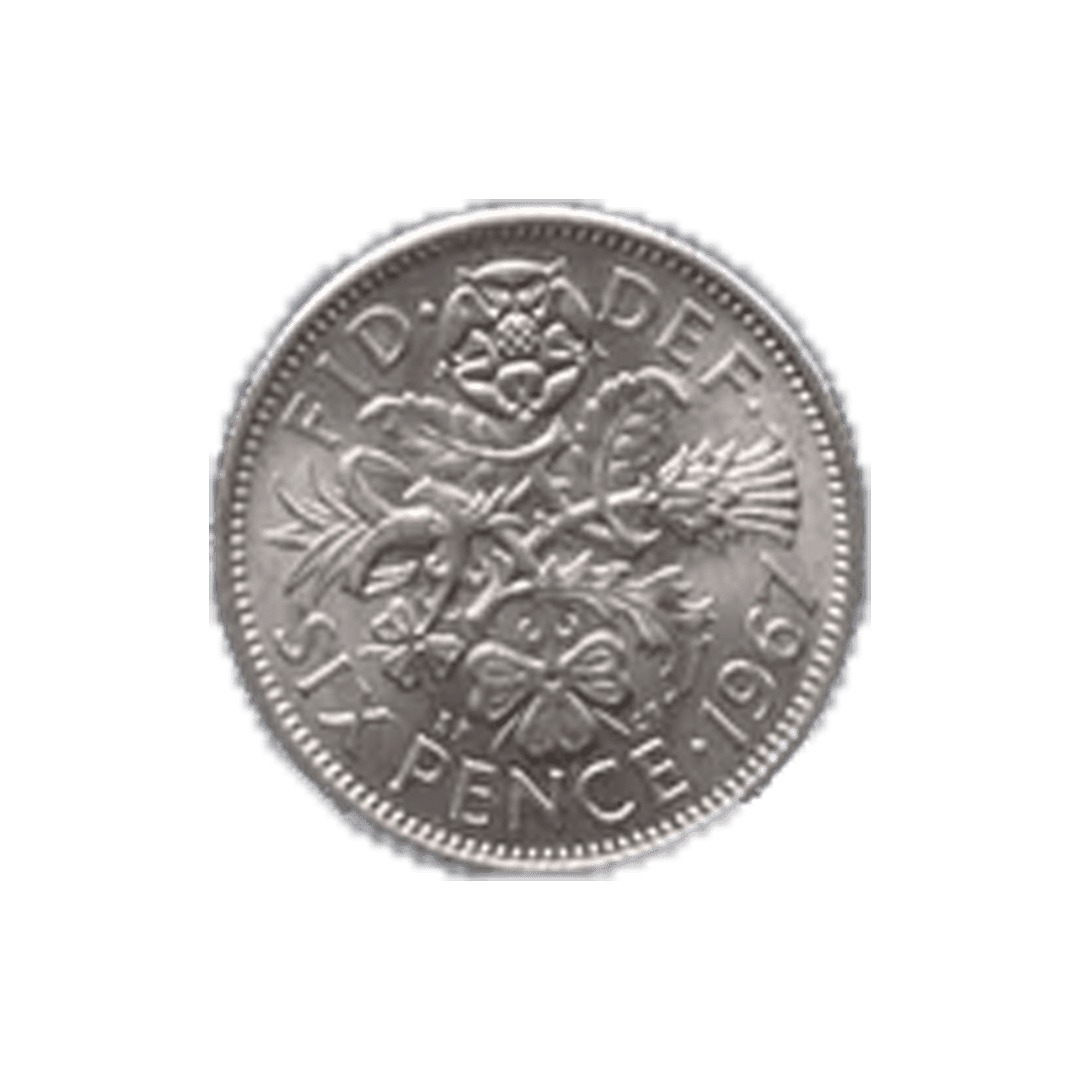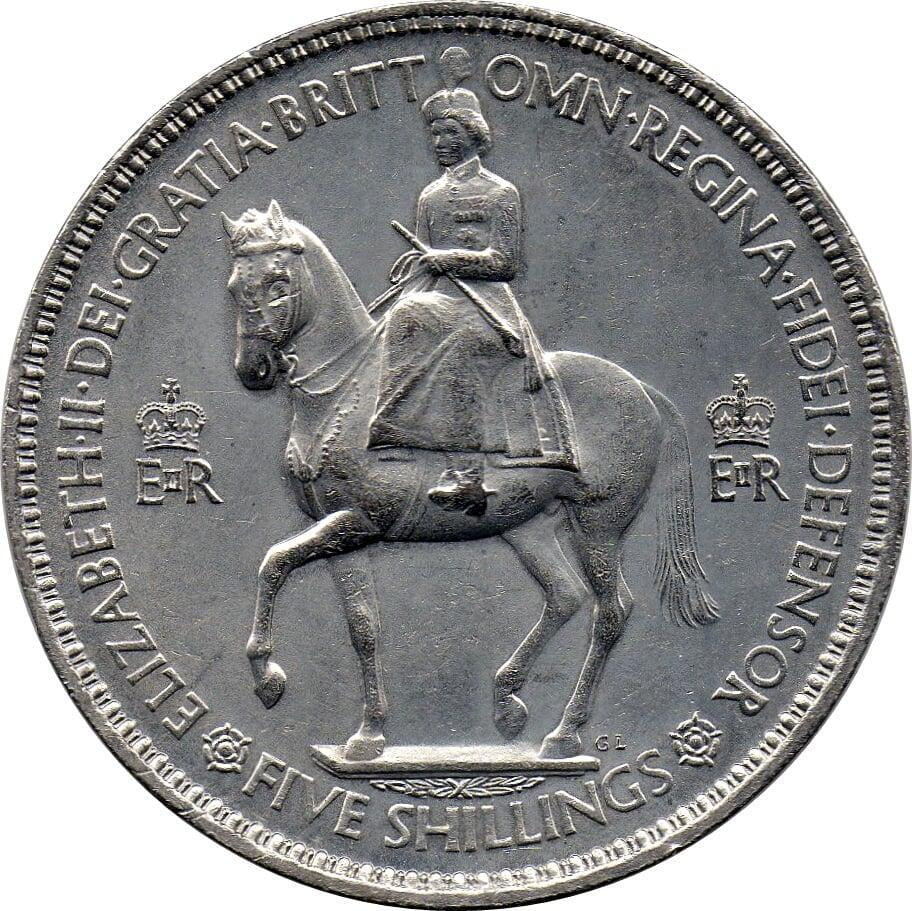1953 Coronation Ten Coin Set
1953 Coronation Ten Coin Set
SOLD OUT!
The 1953 Coronation Ten Coin Set is a collection of British coins that were issued to commemorate the coronation of Queen Elizabeth II. Queen Elizabeth II's coronation took place on June 2, 1953, and this coin set was released to mark this historic event. The set typically includes ten different denominations of coins, all of which were in circulation at that time. Here is a description of the coins typically found in this set:
Three Pence (1801–1967): The Three Pence coin, also known as the thruppence, was a small silver coin used for everyday transactions in the United Kingdom. Its history spans from the 19th century to 1967, making it a charming relic of the past.
One Penny (1860–1970): The One Penny coin, with its iconic image of Queen Victoria or later monarchs, was a common sight in British pockets. It was a symbol of everyday commerce and a glimpse into the changing faces of British royalty.
Half Penny (1672–1967): The Half Penny, or ha'penny, was a beloved coin for over three centuries. Its long history reflects the enduring use of fractional currency in the UK.
Farthing (1860–1956): The Farthing, a tiny coin worth a quarter of a penny, is a delightful piece of British numismatic history. It was cherished by collectors and evokes a sense of nostalgia.
Half Crown (1707–1970): The Half Crown, worth two shillings and sixpence, was a substantial denomination in British currency. It witnessed centuries of economic and social change in the UK.
Two Shilling (1849-1967): The Two Shilling coin, commonly known as the florin, was a prominent part of British currency for nearly a century and a half. Its intricate designs tell the story of Victorian and Edwardian Britain.
One Shilling (1548–1966): The One Shilling coin, marked by a distinctive heraldic design, was a fundamental unit of British currency. Its long history captures the evolution of British coinage.
Six Pence (1551–1970): The Six Pence, often referred to as the "tanner," was a versatile coin used for various transactions. Its presence in British pockets spanned centuries.
Five Shilling (1953): The Five Shilling coin, also known as the Crown, celebrated special occasions and commemorated significant events. While it had a brief circulation, it remains a cherished collector's item.
These coins were issued in various metals, including copper, brass, and silver, with different sizes and denominations. The set was intended for circulation, and the designs on the coins reflect the historical and cultural significance of the coronation of Queen Elizabeth II in 1953. Today, these sets are often sought after by collectors and can vary in value depending on their condition and rarity.
Why Collect the 1953 Coronation Coin Set?
Secure your spot in the world of historic coin collecting with the Kensington Mint Historic Coin today!
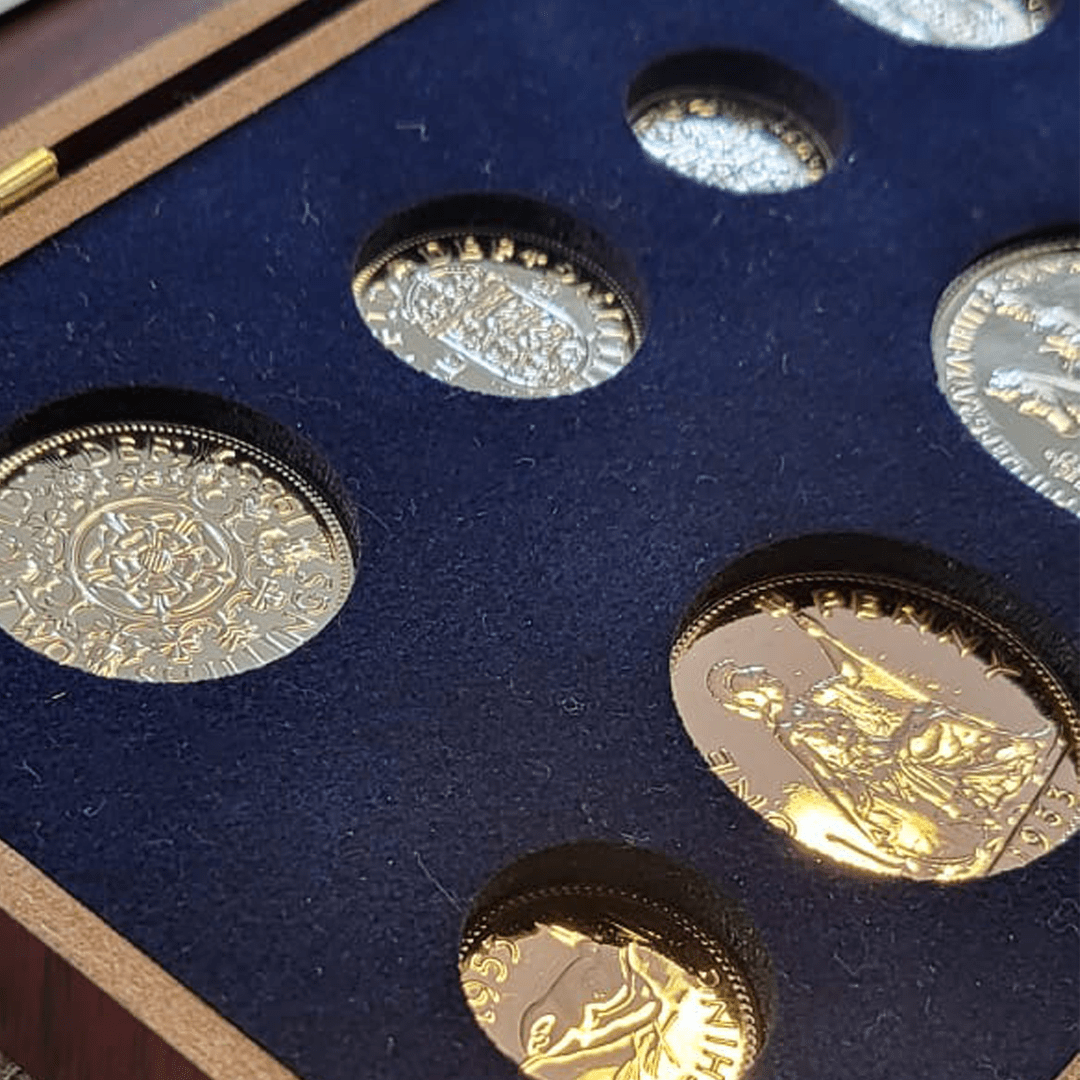
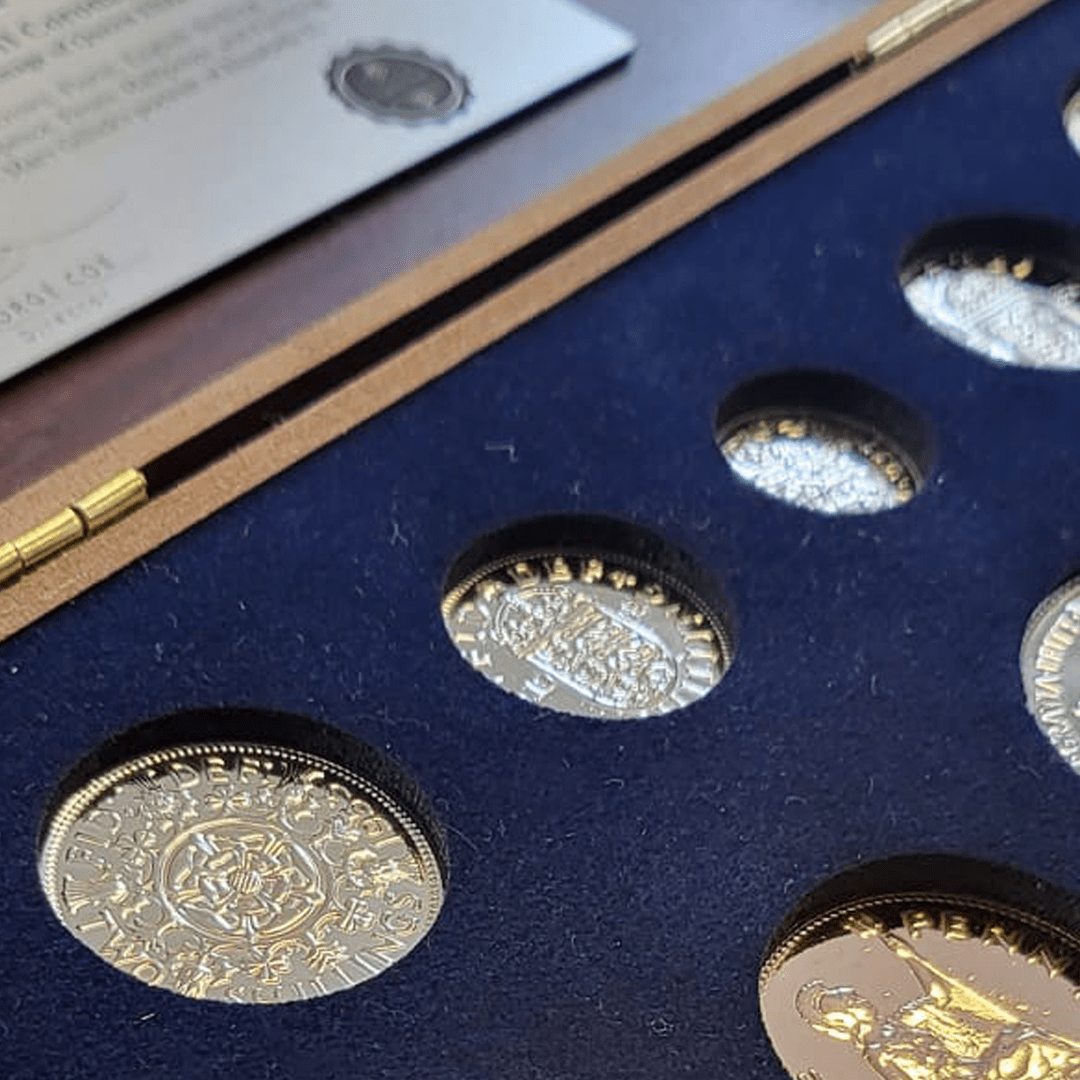
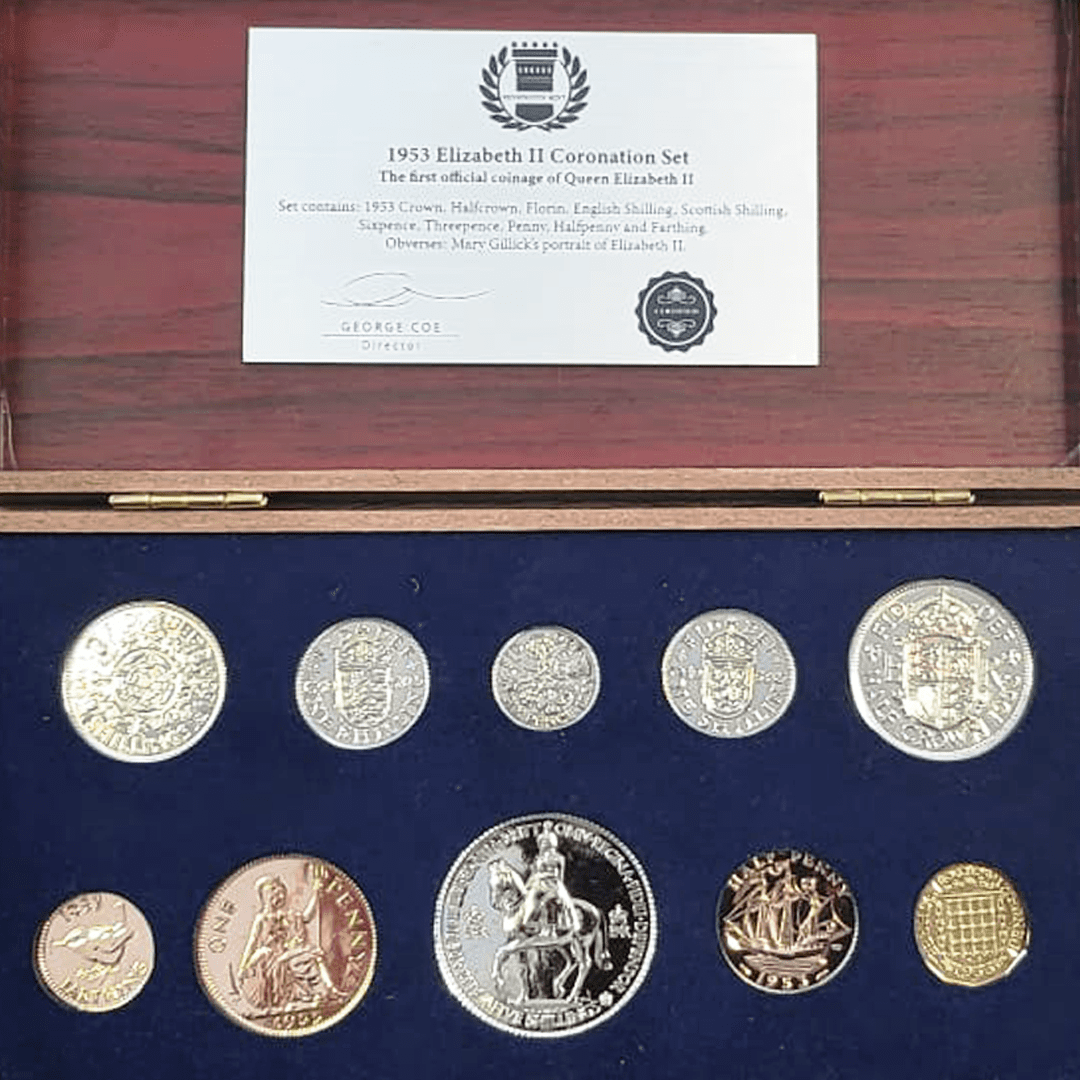
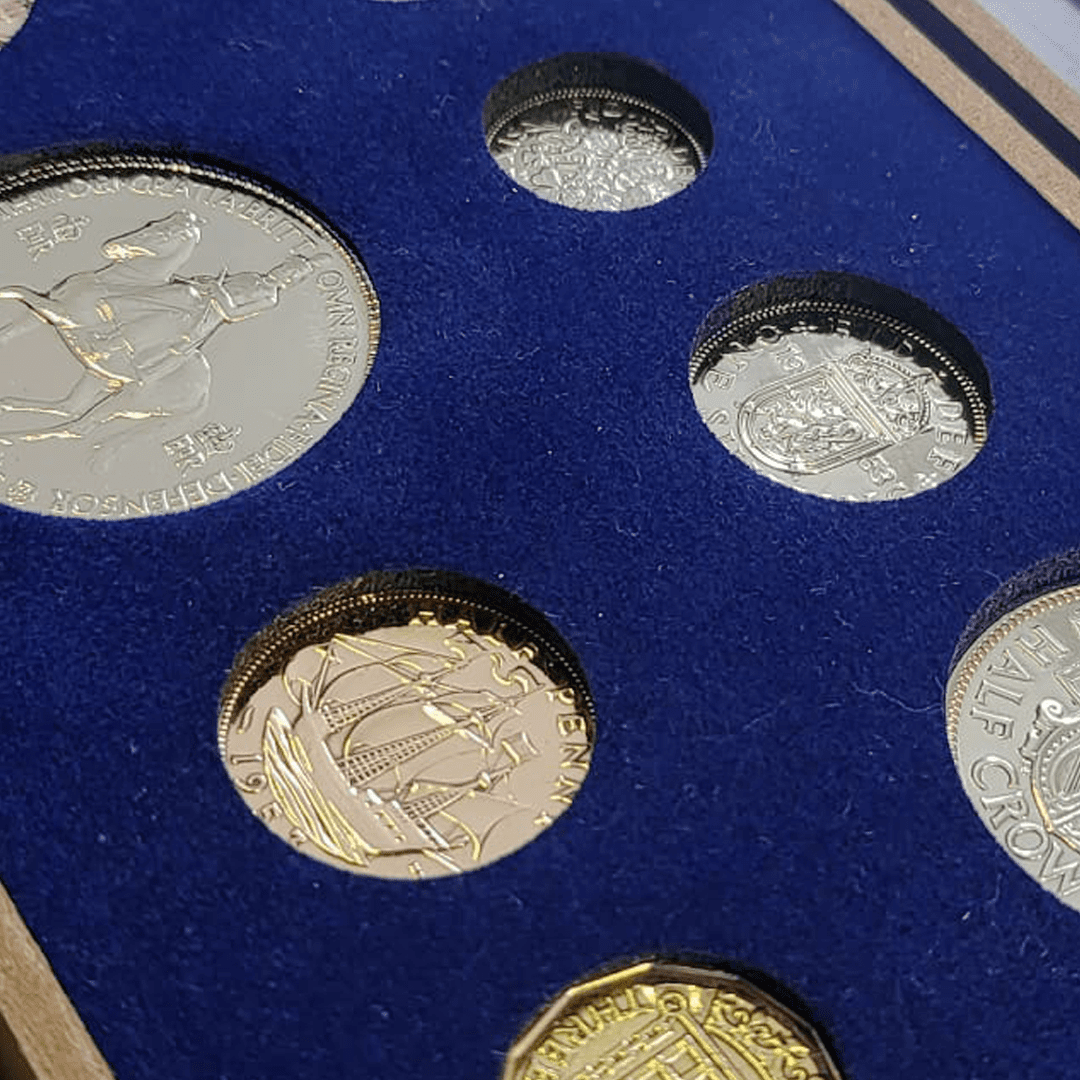
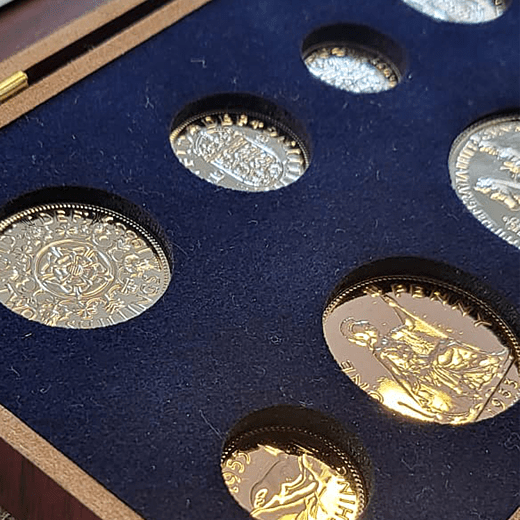
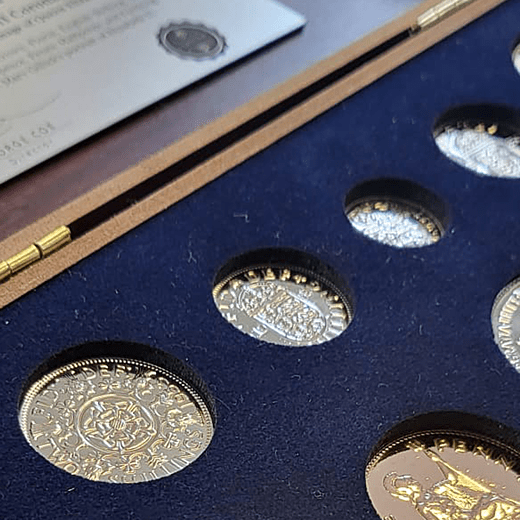
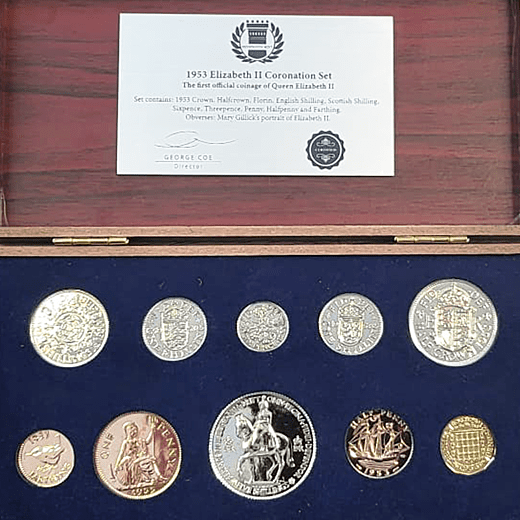
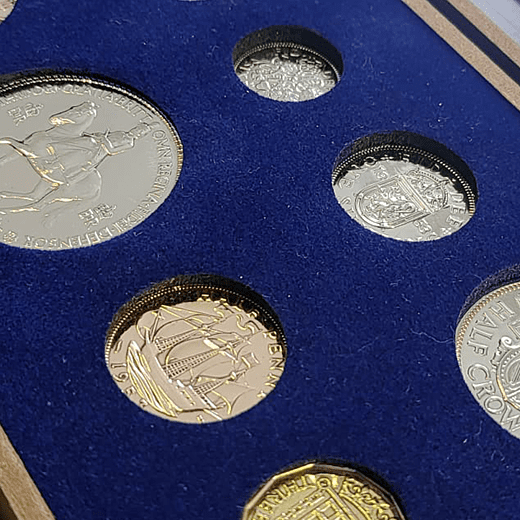
1953 Coronation Ten Coin Set
Coin you will receive with our set:
Each of these coins not only tells a unique story but also comes beautifully presented with its own cover, making them even more special for collectors and enthusiasts alike.
Here are more detailed descriptions for each coin, highlighting the unique historical and collector value of each, along with the added information that each coin comes with its own cover:
Three Pence 1801–1967
The Three Pence coin, affectionately known as the thruppence, represents an enduring piece of British currency history. This diminutive silver coin, in circulation from the early 19th century until 1967, was not only a means of everyday transactions but also a testament to the meticulous craftsmanship of its time. With its beautifully designed motifs and intricate detailing, each Three Pence is a miniature work of art that speaks to an era long past. As an added touch, each coin is elegantly accompanied by its own cover, enhancing its appeal as a collector's item.
One Penny 1860–1970
The One Penny coin offers collectors a captivating journey through British monarchy and numismatic evolution. Adorned with portraits of reigning monarchs, from Queen Victoria to later regents, these coins provide a unique glimpse into the changing faces of British royalty. For collectors and enthusiasts alike, they offer an opportunity to traverse the annals of history. Each One Penny comes with its own distinctive cover, adding a touch of sophistication to this treasured relic.
Half Penny (1672–1967)
The Half Penny, or ha'penny, is a cherished fragment of British coinage history, with a lifespan spanning over three centuries. This fractional denomination coin bears witness to the enduring use of fractional currency in the United Kingdom. Whether you're a seasoned collector or a novice enthusiast, each Half Penny is a testament to the enduring legacy of these coins. Accompanied by its own unique cover, each coin becomes a conversation piece that reflects the intricacies of history.
Farthing (1860–1956)
The Farthing, a charming and petite coin worth a quarter of a penny, evokes nostalgia for a bygone era. With its distinctive designs and historical significance, this coin is a collector's delight. Each Farthing tells a story of its own, representing a time when every coin had a tangible value in daily life. In addition to its historical allure, each Farthing is thoughtfully paired with its own cover, making it a true gem in any collection.
Half Crown (1707–1970)
The Half Crown, a coin worth two shillings and sixpence, stands as a substantial and enduring part of British currency history. Its impressive longevity witnessed centuries of economic and social transformation in the United Kingdom. Each Half Crown showcases the rich heritage of British coinage and adds depth to any numismatic collection. Furthermore, the inclusion of a unique cover enhances the visual and historical appeal of these coins.
Two Shilling (1849-1967)
The Two Shilling coin, commonly known as the florin, is an exemplar of British currency, featuring intricate designs that narrate the story of Victorian and Edwardian Britain. With a history spanning nearly a century and a half, the florin is a captivating piece of numismatic heritage. The addition of a specially crafted cover elevates the florin's status as both a historical artifact and a collector's treasure.
One Shilling (1548–1966)
Six Pence (1551–1970)
The Six Pence, affectionately referred to as the "tanner," was a versatile coin used in various transactions throughout British history. Its presence in British pockets spanned centuries, and each coin has a story to tell. Enhanced by its individual cover, each Six Pence becomes a captivating relic that invites collectors to explore the intricate details and historical significance of this enduring coin.
Five Shilling (1953)
The Five Shilling coin, also known as the Crown, holds a special place in British numismatics. Celebrating significant occasions and commemorating historic events, this coin had a relatively brief circulation but remains a cherished collector's item. Its limited availability and unique cover presentation make it a prized addition to any coin collection, representing the essence of British heritage and celebration.



